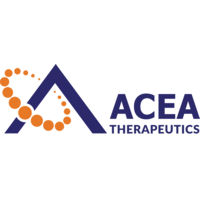It’s been several months since a treatment-related death led the FDA to put a partial hold on Molecular Templates’ only first-generation engineered toxin body (ETB) candidate. Now the company is nixing the program, and Takeda is returning the rights to one of its next-gen candidates.
MT-3724, Molecular’s EBT in development for non-Hodgkin lymphoma, will be no more, the company said on Monday morning. The FDA first placed a partial hold on the candidate in November, following the death of a Phase II patient who experienced Grade 5 capillary leak syndrome.
“Markedly high pharmacokinetic assay readings were observed in this and other subjects treated with a specific lot of MT-3724 material,” according to Molecular.
The agency followed up with a full hold in late March, and requested additional information and the development of a new quantitative assay specific to MT-3724, which Molecular says “would take significant time and investment away” from its priorities.
$MTEM shares dropped more than 25% on the news Monday.
In the same announcement, Molecular said Takeda is backing out of a collaboration deal for TAK-169, a second-generation ETB targeting CD38 for the treatment of multiple myeloma. Takeda forked over $30 million upfront for the partnership back in 2018, and promised milestones up to $632.5 million.
Takeda is turning the full rights over to Molecular, which will owe Takeda “low-single digit royalties” on future net sales. The drug, which was designed to overcome tumor resistance observed with Janssen and Genmab’s daratumumab (the first approved monoclonal antibody targeting CD38), is in a Phase I study.
According to Molecular, Takeda says its decision to back out of the partnership was the result of “ongoing portfolio prioritization.”
So far, Takeda has enrolled and treated four subjects in the TAK-169 Phase I study, and Molecular says there have been no life-threatening toxicities or signs of CLS.
Molecular’s EBTs use genetically engineered versions of the Shiga-like Toxin A subunit. They go after cancer cells and also add antigens into the cancer cells themselves, helping prime the immune system to target them for destruction. CEO and CSO Eric Poma says the company plans to “take immediate steps to accelerate new site activation and patient enrollment in the TAK-169 study to generate data this year.” — Nicole DeFeudis
Charles River partners with Valence to provide AI discovery platform
Big-name CDMO Charles River Laboratories has swung another deal, this time giving its clients access to a new AI platform.
The Wilmington, MA-based firm has teamed up with Valence Discovery, the companies announced Tuesday, in an effort to expand Valence’s AI platform for molecular property prediction, generative chemistry and multiparameter optimization. Financial terms of the deal were not disclosed.
Valence says its platform enables the design of small molecule drugs in new regions of chemical space, allowing for rapid optimization against potency, selectivity, safety and pharmacology criteria on a project-by-project basis. Companies taking advantage of Charles River’s CDMO offerings can opt into the Valence program.
Charles River has been busy to start off 2021, securing a $104 million buyout of Distribution Bio in January and Cognate in an $875 million acquisition in February. — Max Gelman
With topline PhII data in hand, Scholar Rock races toward pivotal trial launch
Scholar Rock says it got the topline Phase II data it was looking for with its spinal muscular atrophy (SMA) drug apitegromab, and is racing to launch a pivotal trial by the end of this year.
The Phase II trial enrolled patients across three cohorts: patients between 5 and 21 years old with ambulatory type 3 SMA; patients between 5 and 21 years old with type 2 and non-ambulatory type 3 SMA who started the treatment nusinersen when they were older than 5 years old; and patients older than 2 years old with type 2 SMA who initiated nusinersen younger than 5.
In the first cohort, patients received either apitegromab either as a monotherapy or in combo with nusinersen. A total of 57% of patients observed a maintenance or improvement on the Revised Hammersmith Scale (RHS), and 22% of patients achieved at least a 3-point increase in RHS score from baseline, according to Scholar Rock.
In Cohort 2, which excluded one patient who was also receiving an acetylcholinesterase inhibitor and one who missed consecutive doses due to Covid-19, the mean change from baseline on Hammersmith Functional Motor Scale Expanded was a 1.2-point improvement.
And in Cohort 3, where patients either received a low or high dose of apitegromab in combination with nusinersen, the mean change from baseline in HFMSE score was a 7.1-point and a 5.3-point improvement for the 20 mg/kg and 2 mg/kg dose arms, respectively. The majority (59%) of patients in Cohort 3 achieved at least a 5-point increase in HFMSE and 35% of patients achieved greater than a 10-point increase in HFMSE over baseline, according to Scholar Rock. That analysis also excluded three patients who had missed doses due to Covid-19 challenges.
Apitegromab aims to boost muscle mass and strength in SMA patients by inhibiting the growth factor myostatin, which breaks down muscle mass in the body.
“These top-line 12-month data provide further support towards establishing apitegromab as a potential first muscle-directed therapy for patients with SMA,” CMO Yung Chyung said in a statement. “The findings also offer important insights into myostatin biology and our scientific approach of targeting the latent forms of growth factors. — Nicole DeFeudis
Sorrento Therapeutics snaps up a late-stage TKI in ACEA Therapeutics buyout
Sorrento Therapeutics is buying out ACEA Therapeutics — and with it, a late-stage tyrosine kinase inhibitor, an extensive library of small molecules, and a 23-acre cGMP facility in Quzhou, China.
The companies began talking about the merger back in October, and officially signed the agreement on Monday.
With the deal, $SRNE is snapping up abivertinib, a small molecule TKI that was originally discovered using ACEA’s compound library. The candidate has completed a Phase III trial in NSCLC, and is currently in Phase II for Covid 19-induced respiratory compromise in the US and Brazil. It’s also getting AC0058, a next generation BTK inhibitor currently in a Phase Ib trial for lupus. — Nicole DeFeudis









